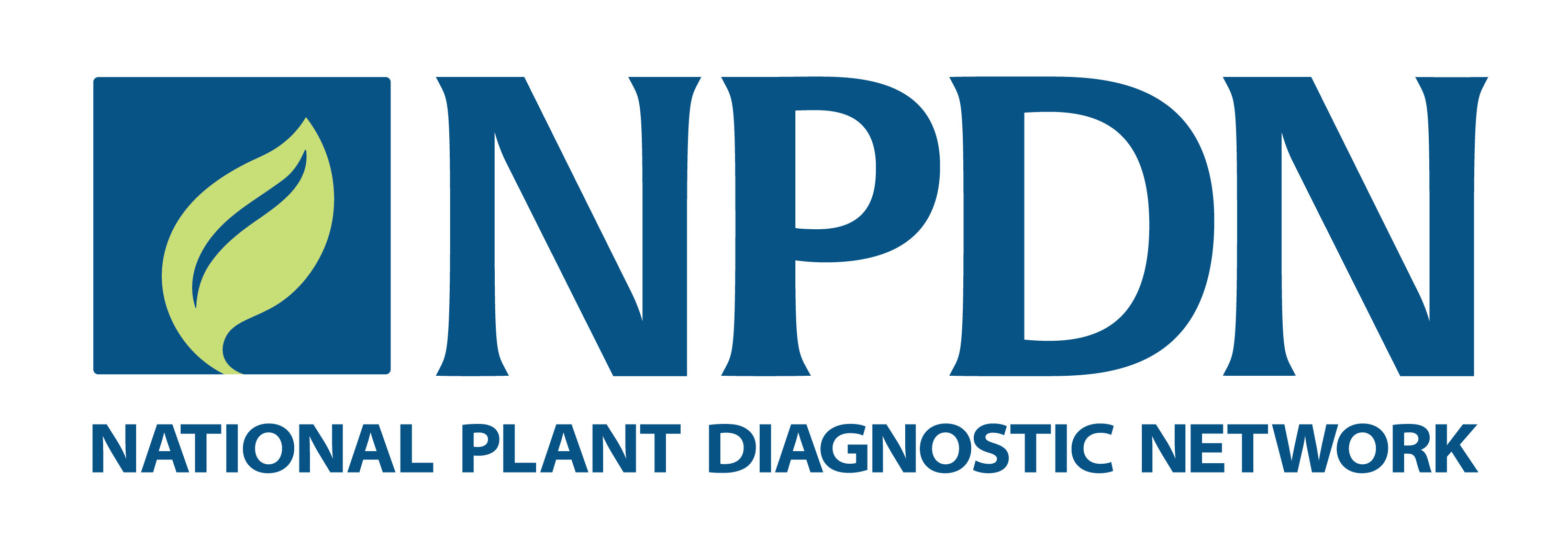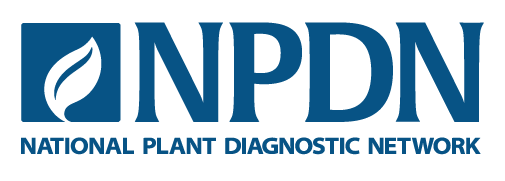Workshops
Bacterial Basics
Instructors: Dr. John Bonkowski, Purdue University, Dr. Nick Goltz, University of Connecticut, and Dr. Alicyn Smart, University of Maine.
Duration: 2 hours
Date & time: September 12th, 8:00 - 10:00 AM.
If you are interested in incorporating bacteria testing to genus in your lab or would like to expand the differentials that you perform, this workshop is for you! We will discuss common symptoms of bacterial diseases, how to look for bacterial streaming, and the various tests that can be used to identify bacteria to genus. Participants will have an opportunity to perform different bacterial media isolation techniques, observe positive and negative results of bacterial differential tests, and to inoculate indicator plants to test for hypersensitive response.
Fungal Basics
Instructor: Dr. Megan Romberg, MRP-APHIS.
Duration: 2 hours
Date & time: September 12th, 10:15 AM - 12:15 PM.
This 2 hour workshop will use specimens and previously prepared slides to cover some of the distinguishing characters used to determine the major fungal group present on a sample. Overarching characters for asexual and sexual states of Ascomycota, Basidiomycota (rusts and smuts) and Oomycota (downy mildews and white rusts) will be demonstrated, along with literature resources that can be used for genus and species identification once the major fungal group has been determined.
Micro Lepidoptera Specimen Preparations & Techniques
Instructor: Dr. Jason J. Dombroskie, Cornell University.
Duration: 1 hour and 45 minutes
Date & time: September 12th, 1:15 PM - 3:00 PM.
Microlepidoptera are often difficult to identify and this is only made more difficult or impossible when specimens are poorly prepared. In this workshop we will cover the most frequently encountered superfamilies, which structures are important for identification, best killing agents, how to relax specimens, and various spreading techniques. We will also do an overview of dissection tools and techniques.
Sampling and Identifying Eriophyid Mites
Instructor: Dr. Matt Bertone, North Carolina State University
Duration: 1 hour and 45 minutes
Date & time: September 12th, 3:15 PM - 5:00 PM.
Mites in the superfamily Eriophyoidea (Phytoptidae, Diptilomiopidae, and Eriophyidae) are phytophagous arthropods, some of which are important direct plant pests or disease vectors. Although they are common, they are also minute (~0.25 mm), thus often difficult to diagnose and identify. In this workshop, Dr. Bertone will give general information regarding the diversity and identification of mites in this group, along with hands-on techniques for sampling, manipulating, and identifying them.
Fusarium for Busy People
Instructor: Dr. David Geiser, Penn State University.
Duration: 4 hours
Date & time: September 13th, 8:00 AM - 12:00 PM.
This four-hour workshop will focus on the basics of Fusarium identification, aimed at diagnostician who have little time to spend on speciating Fusarium. An introduction to the concepts of speciation within this challenging genus, the challenges within identification, and protocols for isolating and culturing will be discussed. The majority of the workshop will be spent with samples at the microscope, allowing participants to differentiate between standard species of agricultural importance based on their morphological characters.
Emerging Insect Pests From Each Region
Instructor: Gary Fish, Maine Department of Agriculture, Conservation and Forestry.
Duration: 2 hours
Date & time: September 13th, 1:00 PM - 3:00 PM.
Emerging pests of concern may show up unexpectedly in your lab. This workshop will provide a hands-on look of the arthropod specimens that have recently emerged in North America. Become more familiar with the identification of these emerging pests, the symptoms they cause on plants, and how to communicate sensitive information with your SPRO and SPHD.
Comparison of Phytopythium, Phytophthora, and Pythium
Instructors: Dr. Alejandro Rojas and Austin Mccoy, Michigan State University.
Duration: 2 hours
Date & time: September 13th, 3:15 PM - 5:15 PM.
Numerous crops are affected by economically significant diseases caused by various species of Phytophthora and Pythium. A new genus called Phytopythium, which is intermediate between the two groups, has been introduced to differentiate it from other oomycetes, despite the overlapping morphology with both Pythium and Phytophthora. The identification and diagnosis of the potential oomycete genera causing a disease can be challenging for several reasons. The workshop conducted by Dr. Rojas and Dr. McCoy will provide essential information on the morphological and molecular characteristics and techniques that can be used to accurately diagnose an oomycete causal agent.
Tours and field trips
Lobster Bake on Coastal Island of Maine
Date & time: September 11
Experience a Maine lobster tradition on Peaks Island! Enjoy a delicious lobster dinner while taking in stunning coastal views. Dinner will be served at the historic Peaks Island Lions Club. Savor your meal on the outdoor patio, enjoying Kan Jam, corn hole, or volleyball with fellow travelers. Your ticket includes a ferry ride to and from Peaks Island, your choice of lobster, steak, chicken, or a vegetarian dinner (each dinner comes with a side of chowder, potato, rolls, coleslaw, and corn on the cob), homemade blueberry cake for dessert, and ample time to explore the island!
Wild Blueberry
Date & time: September 13, 8:00 AM - 5:00 PM
Lead by Dr. Lily Calderwood and Dr. Seanna Annis, University of Maine
The tour starts by visiting a wild blueberry field in Rockport, located in the portion of the state called the Midcoast. Here, you will learn about the uniqueness of this crop, the introduction of solar and blueberry production, and the pests and diseases that are problematic. Next, you will visit a blueberry field where a mulching study is being carried out, followed by visiting the farm's fresh pack building and a distillery. The tour will end in Camden, where you can enjoy blueberry wine while enjoying the views of this beautiful seaport town.
*Appropriate footwear is required due to uneven ground and a steep climb up to one of the fields.
Acadia National Park
Date & time: September 12, 7:30 AM - 5:30 PM.
Lead by Aaron Bergdahl, Department of Agriculture, Conservation & Forestry.
Acadia National Park is one of the top 10 most-visited national parks in the United States. The park is the highest rocky headlands along the Atlantic coastline of the United States, making the most beautiful views. This tour will focus on exploring the beauties of the park and some of its forest pests! You will have a guided tour of the park by a Maine Forest Service forest pathologist and entomologist exploring a beech leaf disease long-term monitoring plot, learning about red pine scale, hemlock woolly adelgid and biocontrol efforts, and seeing the impact of white pine needle damage, among other pests causing issues in the park.
*Appropriate footwear is required due to trails that will be taken that will also have an incline. A windbreaker-type jacket is suggested due to the often windy and cooler coastal environment.

